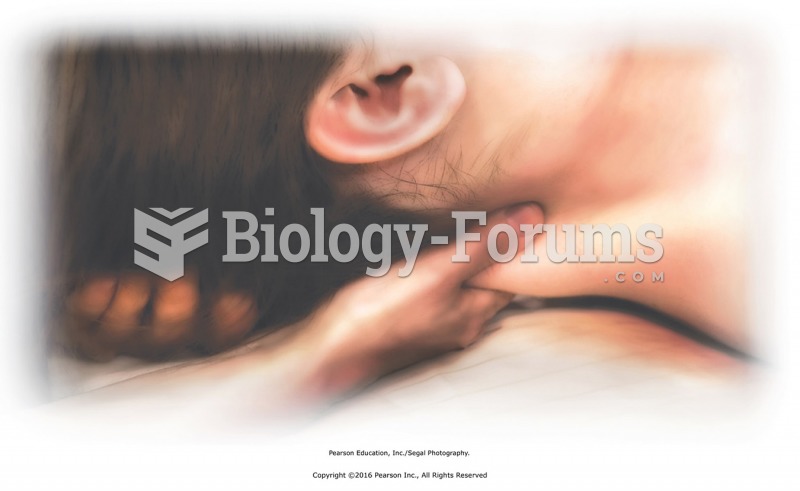|
|
|
Since 1988, the CDC has reported a 99% reduction in bacterial meningitis caused by Haemophilus influenzae, due to the introduction of the vaccine against it.
In most climates, 8 to 10 glasses of water per day is recommended for adults. The best indicator for adequate fluid intake is frequent, clear urination.
In women, pharmacodynamic differences include increased sensitivity to (and increased effectiveness of) beta-blockers, opioids, selective serotonin reuptake inhibitors, and typical antipsychotics.
The first war in which wide-scale use of anesthetics occurred was the Civil War, and 80% of all wounds were in the extremities.
The term bacteria was devised in the 19th century by German biologist Ferdinand Cohn. He based it on the Greek word "bakterion" meaning a small rod or staff. Cohn is considered to be the father of modern bacteriology.
 A typical fuel-pump module assembly, which includes the pickup strainer and fuel pump, as well as ...
A typical fuel-pump module assembly, which includes the pickup strainer and fuel pump, as well as ...
 Apply oil or lotion to the entire leg. Include hip if performing massage to hip region as part of ...
Apply oil or lotion to the entire leg. Include hip if performing massage to hip region as part of ...





